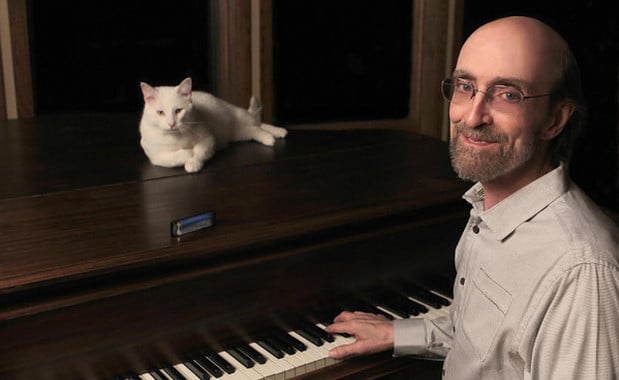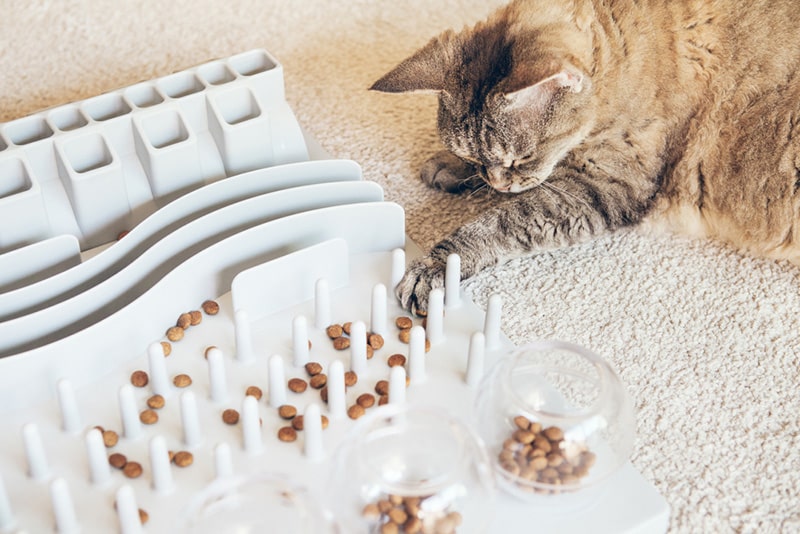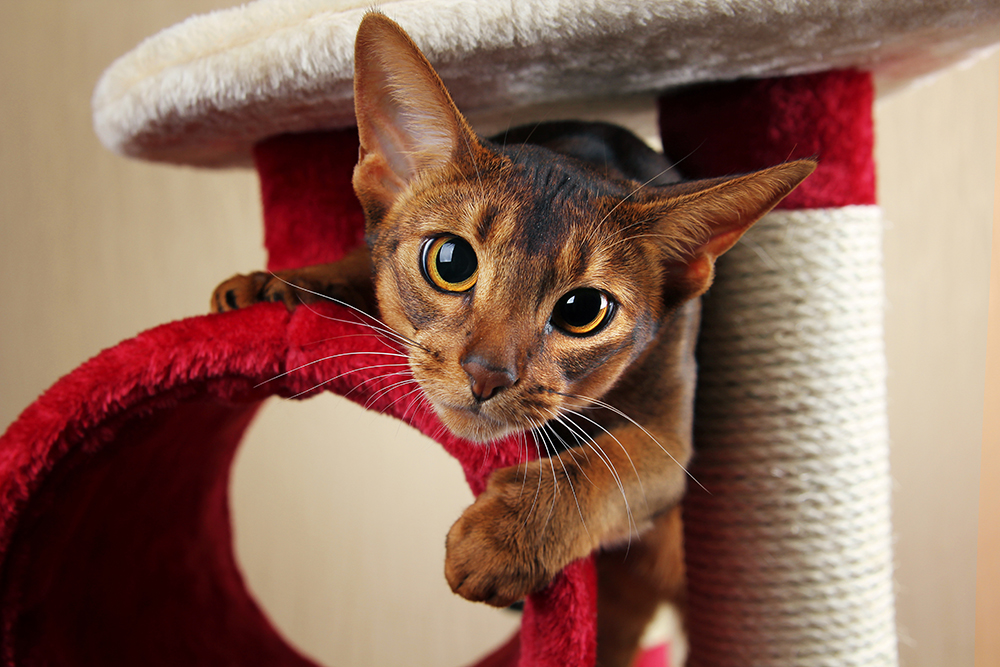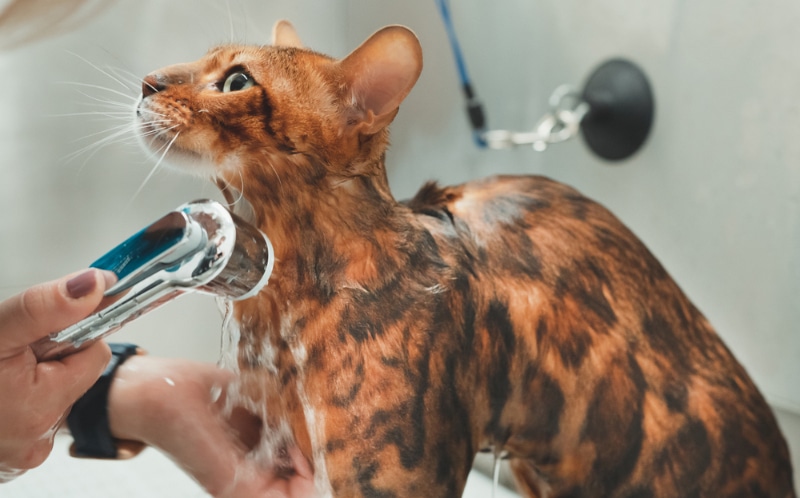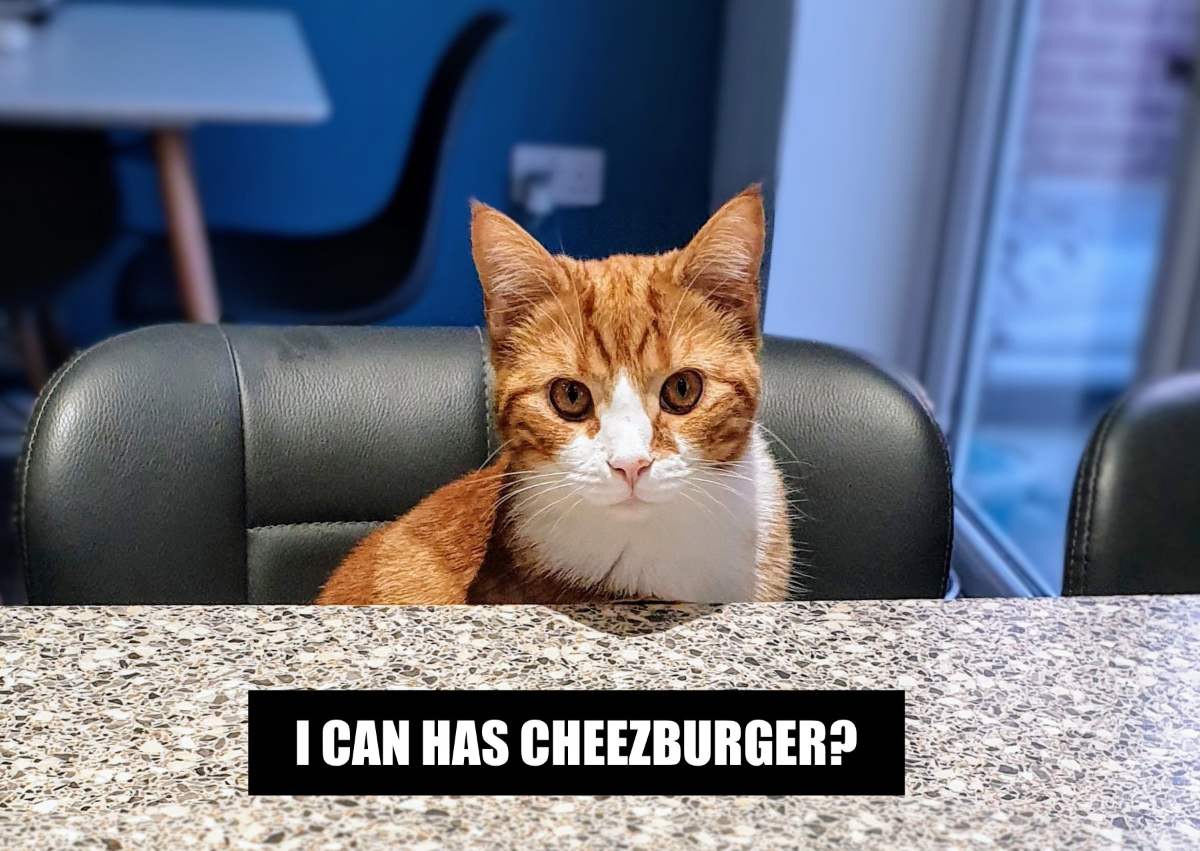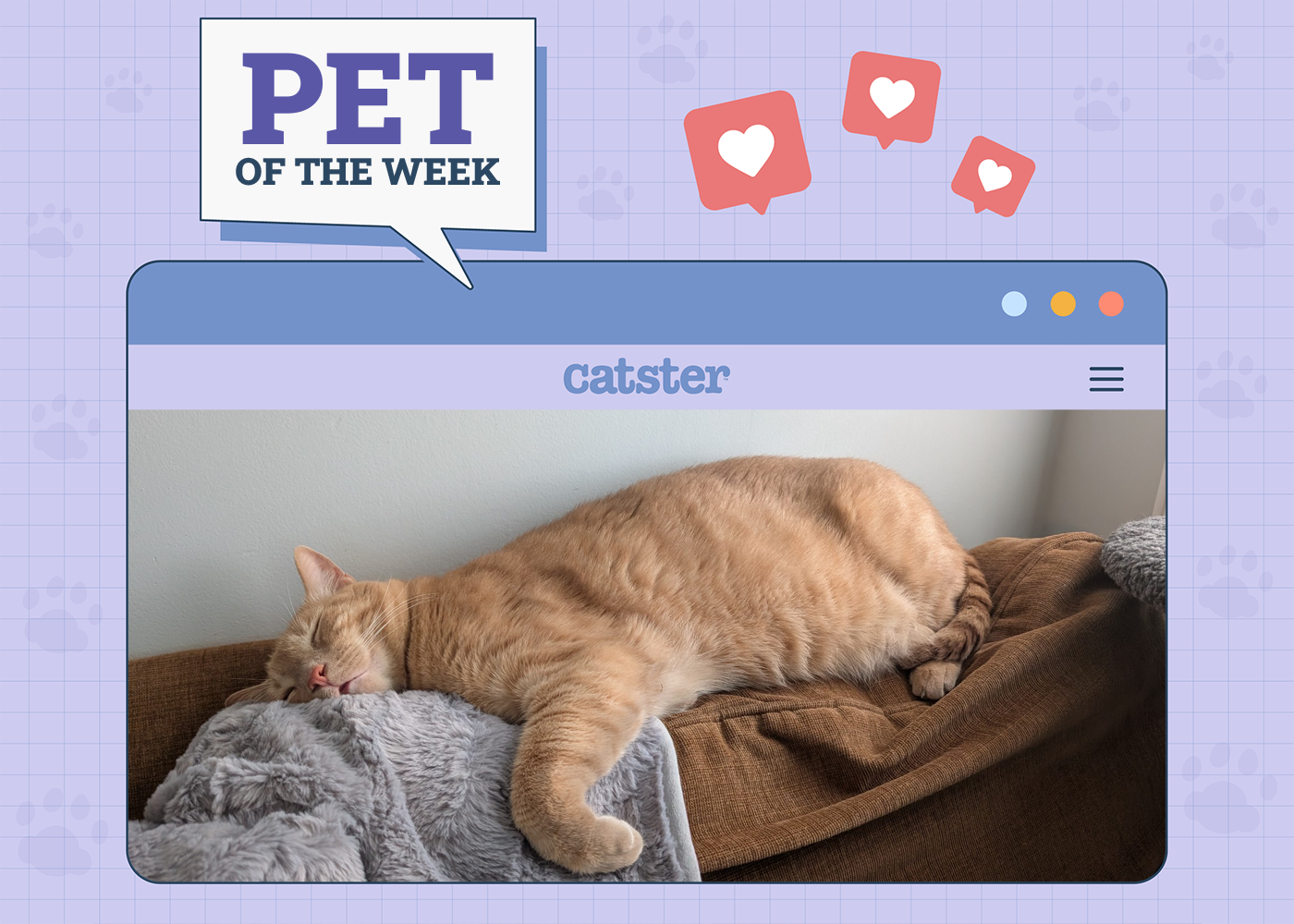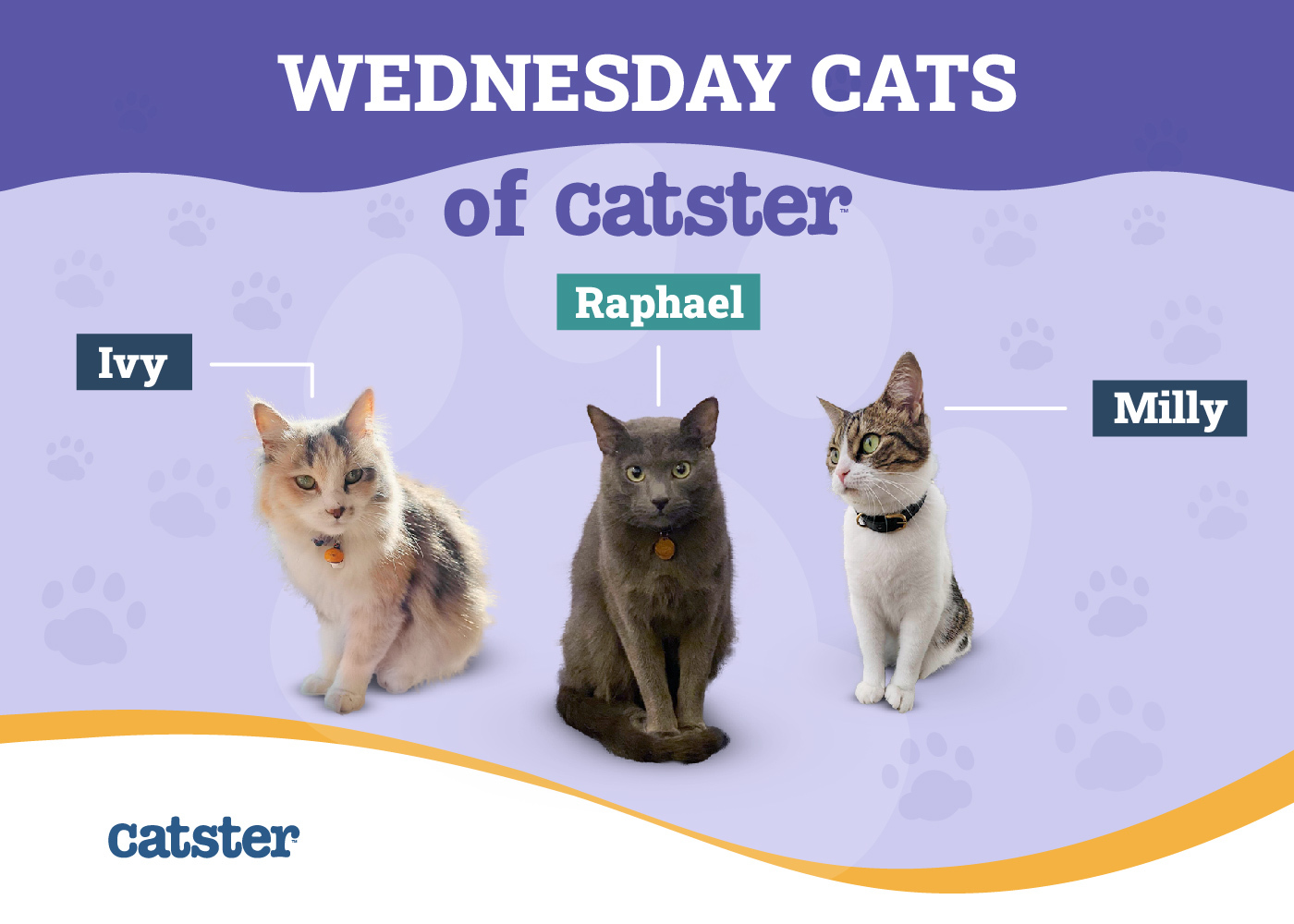Originally published on 17 April 2017 – Republished as a tribute to George Winston’s incredible work.
You probably recognize George Winston’s solo piano music, regardless of what you do or don’t know about the composer himself. The American pianist has sold some 15 million albums over a career spanning 40 years, and he might be best known for his renditions of music written by Vince Guaraldi for the Peanuts TV specials and films. What you probably didn’t know about Winston, though, is that he’s absolutely mad about cats. Since age five, he says he has been close to 22 cats. He has written multiple piano pieces about them. He named his label Dancing Cat Records. Cats have had a profound influence on Winston’s life as well as his music.
His new collection is called Spring Carousel. It’s a cancer research benefit for a California hospital called City of Hope, where Winston underwent a bone-marrow transplant in 2012 for a disorder called myelodysplastic syndrome, or MDS.
We interviewed Winston about his life-saving procedure, his music, his general outlook on life and love, and how cats figure into it all.


In 2016, you told the Bend Bulletin, “I love cats more than anything,” and that for you, “everything comes from cats.” For a musician of your experience and renown, those are pretty all-encompassing statements. Are cats really that central for you?
Yes, I have always loved cats more than anything, since the age of five when I was with the first cat, Sylvester, named after the comic book character (there was no TV in Miles City, Montana, where I met Sylvester, so I was reading a lot.)
What role do cats play in your musical composition? Have individual cats been muses, for example? Or are cats in themselves metaphors for artistry itself?
Actually, both of those things.
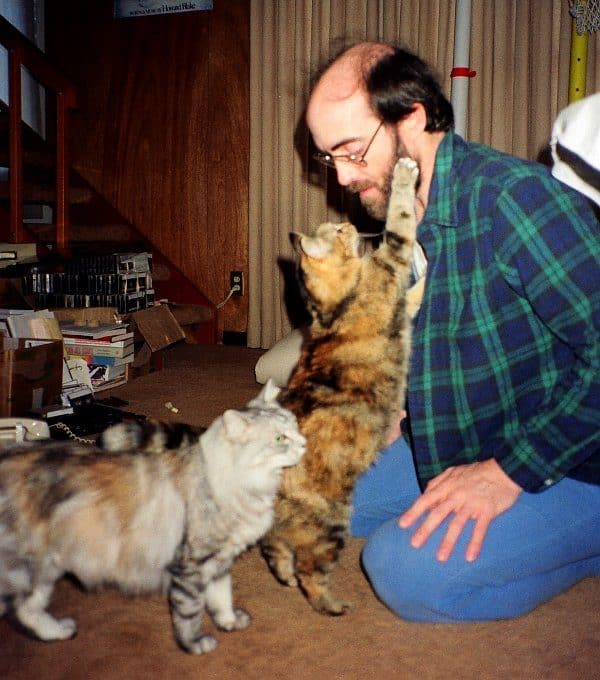
You’ve noted that the extreme seasonal changes in Montana have influenced what you compose. Are cats similar to weather patterns, say, in their ability for dramatic mood shifts throughout a single day?
Yes, for all of those things — I notice and I am influenced by, and inspired by, the seasons, the topographies, the weather, and then I react musically. It is the same with cats that I know, or that I meet or see.
Your label is called Dancing Cat Records. Where did the name come from?
There was a black cat that I was with named Miffffffffffff. He would stand up to get his head scratched. The logo for the record label is a drawing of him. He was influenced by another cat I was with, Arabella, who was the original dancing cat, standing up to get her head scratched. Miffffffffffff saw all the attention she was getting, and he started dancing also. I often see if either cats will dance. When I first met Naco, who adopted me, she danced right away.
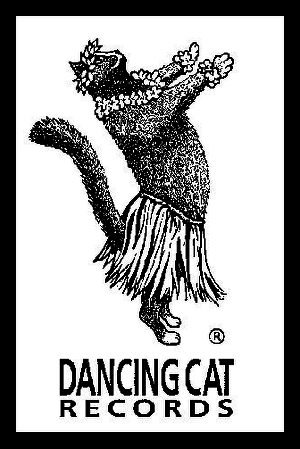
You’ve also said that individual pianos, even ones made the same manufacturer, are like cats. Tell us about that.
Yes, each piano and each cat are different (and both have many parts)!
Your style is quite distinct, and many people of my generation associate your name with Charlie Brown and the music of the Peanuts TV specials and films, as you’ve recorded a number of tribute albums to Vince Guaraldi, who wrote that music. Who were some of your other musical influences?
Yes, I have recorded three albums of Vince Guaraldi’s compositions. They are Linus and Lucy: The Music of Vince Guaraldi, and Love Will Come: The Music of Vince Guaraldi, Vol. 2. There will be a third volume out in about 2018 or soon after, called Bay of Gold: The Music of Vince Guaraldi, Vol. 3.
My other piano influences and inspirations have been Thomas “Fats” Waller, Teddy Wilson, and the New Orleans pianists Professor Longhair, James Booker, and Henry Butler; and also New Orleans pianists Dr. John, Jon Cleary, and Allen Toussaint, as well as pianists Philip Aaberg, Abdullah Ibrahim, Oscar Peterson, and Art Tatum.
Your new work is called Spring Carousel, and I understand its proceeds will benefit City of Hope, a hospital in California where you underwent a bone-marrow transplant as part of cancer treatment. I also understand you composed the 15 piano pieces while recovering. I guess it’s no coincidence that spring – with its themes of rebirth and regenration – is the subject of that effort.
Yes, I was recovering in the early spring, and I was staying in the Village at City of Hope after getting out of the hospital there. I had access to the piano in the hospital auditorium at nights, and while I was practicing for when I started touring again, these songs happened. They were inspired by the great treatment and people at City of Hope, and the spring season.
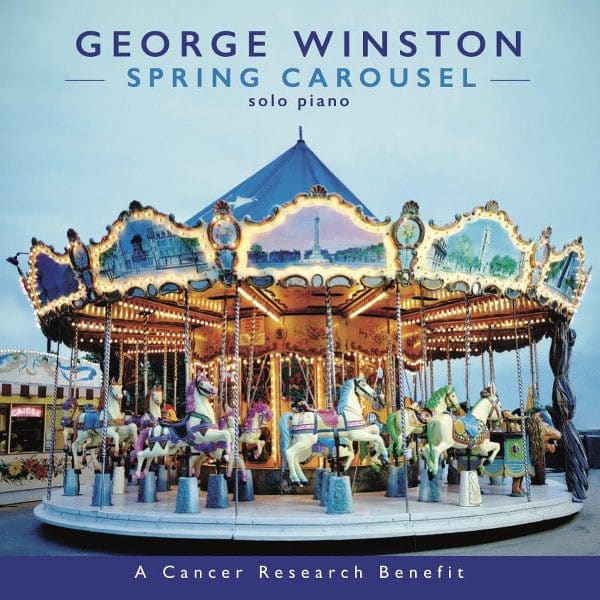
Did a cat or cats play a part in your recovery?
Yes, thinking of the 22 cats I have been the closest to since the age of five, and also the new ones I have met, and continue to meet.
One song is named for a cat in your life. It’s called “Pixie #13 in C (Gobajie).” I have to say, for me it’s the most uplifting piece of the 15 in Spring Carousel. It’s inspirational, and it’s playful without being comical. Tell us about the piece (which I believe is not the only one you’ve named for Gobajie).
That song was inspired by the playing of the late New Orleans pianist James Booker (1939–1983), and a cat I was with, Gobajie (1984–1997).
Tell us about Gobajie – the name as well as the cat.
Gobajie was acquired as a kitten. When I met her the name just popped out. She had a silent purring and when she meowed the sound was very chirpy because of the internal vibrations of her silent purring. She was very sensitive and loved another cat, Goobajie. She was a beautiful silver fox looking kitty, and when she was a kitten, she was the feistiest kitten I have ever known. James Booker had a song called “Pixie,” which I play live and have recorded. I have come up over the years 14 other “Pixies.” I define a “Pixie” as a medium-tempo song, with a blues type chord progression, and with the left-hand staying mainly toward the middle of the piano, as James Booker’s “Pixie” was. James Booker and Gobajie have both inspired these pieces.
Tell us about the cat with the similar name — Goobajie?
Goobajie ran into the room as I was closing a hotel room door in 1984. The front desk people said she was a stray, so I took her home with me. My relationship with her is indescribable, but I can say that I have never had a relationship with another being, or anything, like I had with her. For eight years I learned what infinite love was, for her and from her. She was very empathetic and wanted to and tried to comfort anyone who was hurting in any way, and she seemed to know almost everything. I have never experienced a consciousness like hers. She slept on my chest every night, and Gobajie always joined us, sleeping between my knees. I still to this day can’t believe I experienced these beings.
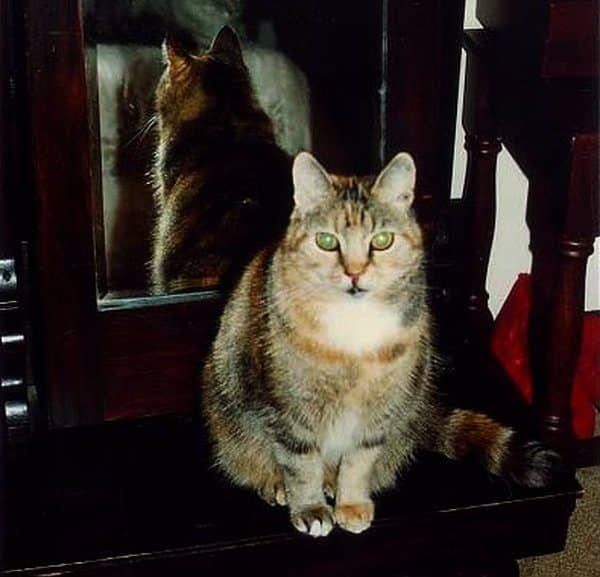
What role have cats played in your life overall?
They have helped me realize that all living beings are cats in different forms, and that I can appreciate all of them.
Is there anything you’d like to add that I’ve not asked about?
If I had it to do over again I would have been a cat vet.

